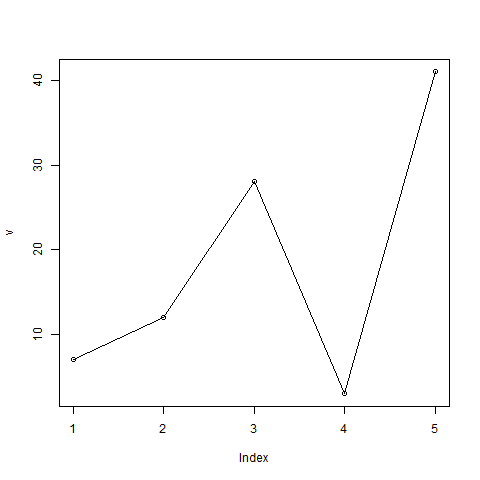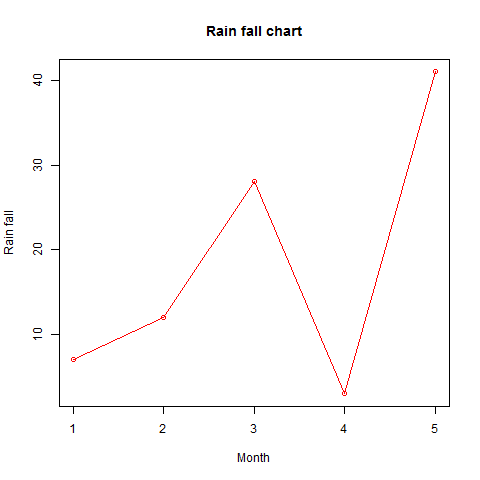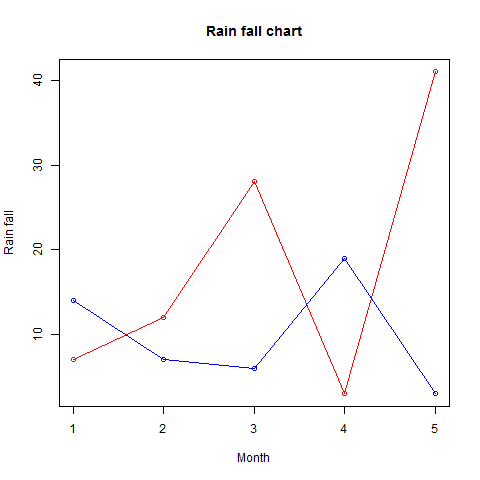R语言折线图 R语言绘制折线图实例分析
w3cschool 人气:0想了解R语言绘制折线图实例分析的相关内容吗,w3cschool在本文为您仔细讲解R语言折线图的相关知识和一些Code实例,欢迎阅读和指正,我们先划重点:R语言,折线图,下面大家一起来学习吧。
折线图是通过在它们之间绘制线段来连接一系列点的图。 这些点在它们的坐标(通常是x坐标)值之一中排序。 折线图通常用于识别数据中的趋势。
R语言中的plot()函数用于创建折线图。
语法
在R语言中创建折线图的基本语法是 -
plot(v,type,col,xlab,ylab)
以下是所使用的参数的描述 -
- v是包含数值的向量。
- 类型采用值“p”仅绘制点,“l”仅绘制线和“o”绘制点和线。
- xlab是x轴的标签。
- ylab是y轴的标签。
- main是图表的标题。
- col用于给点和线的颜色。
例
使用输入向量和类型参数“O”创建简单的折线图。 以下脚本将在当前R工作目录中创建并保存折线图。
# Create the data for the chart. v <- c(7,12,28,3,41) # Give the chart file a name. png(file = "line_chart.jpg") # Plot the bar chart. plot(v,type = "o") # Save the file. dev.off()
当我们执行上面的代码,它产生以下结果 -

折线图标题,颜色和标签
线图的特征可以通过使用附加参数来扩展。 我们向点和线添加颜色,为图表添加标题,并向轴添加标签。
例
# Create the data for the chart. v <- c(7,12,28,3,41) # Give the chart file a name. png(file = "line_chart_label_colored.jpg") # Plot the bar chart. plot(v,type = "o", col = "red", xlab = "Month", ylab = "Rain fall", main = "Rain fall chart") # Save the file. dev.off()
当我们执行上面的代码,它产生以下结果 -

多线型折线图
通过使用lines()函数,可以在同一个图表上绘制多条线。
在绘制第一行之后,lines()函数可以使用一个额外的向量作为输入来绘制图表中的第二行。
# Create the data for the chart. v <- c(7,12,28,3,41) t <- c(14,7,6,19,3) # Give the chart file a name. png(file = "line_chart_2_lines.jpg") # Plot the bar chart. plot(v,type = "o",col = "red", xlab = "Month", ylab = "Rain fall", main = "Rain fall chart") lines(t, type = "o", col = "blue") # Save the file. dev.off()
当我们执行上面的代码,它产生以下结果 -

加载全部内容